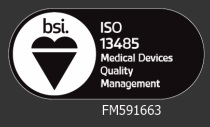The Association of periOperative Registered Nurses has recently released a revamped and substantially changed set of guidelines for the reprocessing of flexible endoscopes. The new guidelines were released at the end of February this year (2016) and contain substantial upgrades to the previous guidance. The transmission of bacterial infections resulting from improperly cleaned and disinfected endoscopes has and continues to be a serious risk for patients and for health care providers. The complexity of the technology, particularly relating to duodenoscopes, has made the process of reprocessing these devices more complex and technically burdensome for endoscopy and sterile processing personnel.
Central to the new guidelines are new recommendations for:
cleaning verification tests as part of manual cleaning;
mechanical cleaning and disinfection in place of manual cleaning and disinfection;
and the storage of flexible endoscopes in a drying cabinet.
According to the AORN " the collective evidence shows that mechanical processing improves cleanliness, increases efficiency, minimizes personal exposure to biohazardous materials, and can be more successfully monitored for quality and consistency."
Additionally, "The collective evidence shows that optimal storage of flexible endoscopes facilitates drying, decreases the potential for contaminations, and provides protection from environmental contaminants."
These guidelines represent a significant step forward in patient and worker safety as well as providing tremendous opportunites for increased efficiencies in the reprocessing of flexible endoscopes.
ARC's endoscope cleaning station and drying cabinets are the ideal solution for every health care institutions' response to the new guidelines.
Central to the new guidelines are new recommendations for:
cleaning verification tests as part of manual cleaning;
mechanical cleaning and disinfection in place of manual cleaning and disinfection;
and the storage of flexible endoscopes in a drying cabinet.
According to the AORN " the collective evidence shows that mechanical processing improves cleanliness, increases efficiency, minimizes personal exposure to biohazardous materials, and can be more successfully monitored for quality and consistency."
Additionally, "The collective evidence shows that optimal storage of flexible endoscopes facilitates drying, decreases the potential for contaminations, and provides protection from environmental contaminants."
These guidelines represent a significant step forward in patient and worker safety as well as providing tremendous opportunites for increased efficiencies in the reprocessing of flexible endoscopes.
ARC's endoscope cleaning station and drying cabinets are the ideal solution for every health care institutions' response to the new guidelines.

 RSS Feed
RSS Feed
